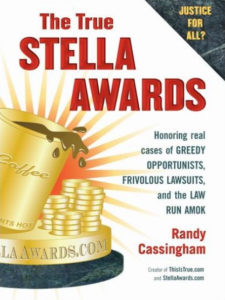This is kind of hilarious.
Conservation groups asked California to protect four species of native bumblebees. The agriculture industry objected on the grounds that the state’s endangered species law doesn’t cover insects. But the state fish and game code, in trying to cover all its bases defining marine life, defines a fish as “a wild fish, mollusk, crustacean, invertebrate, amphibian, or part, spawn, or ovum of any of those animals.”
So technically, bumblebees, being invertebrates, are eligible for protection as fish.
The state supreme court ruled in favor, because that’s technically what the law says. The judge pointed out that the legislature “is in a position to make whatever statutory amendments it may regard as necessary or useful” to resolve any ambiguities…and specifically stated that the ruling does not mean that the court actually believe bumblebees are fish!
Photo of a Yellow-Faced Bumblebee I saw at the South Coast Botanic Gardens a while back. It’s not one of the four species being petitioned for protection. But I wanted to use one of my own photos for illustration, rather than use the one from the newspaper. Though it’s amusing that of the four endangered species they went with a photo of — I kid you not — Bombus crotchii, a.k.a. Crotch’s Bumblebee. Named after George Robert Crotch.
Expanded from a post on Wandering.shop.
Also: Darwinian Honeybees
On a more serious note, hobbyist beekeepers are starting to use a strategy called Darwinian beekeeping to fend off colony collapse disorder.
Essentially you try to mimic how honeybees would live in the wild instead of trying to pack in as many monocultured hives as you can. Build smaller hives and spread them out, so if one gets infested the parasites or diseases don’t spread as easily to the next. Capture a wild swarm of honeybees, which, unlike mail-order bees bred to maximize honey production, have evolved defenses against the invasive mites that have been attacking developing bees. Keep the hives away from plants you’re going to be using pesticides on.
The causes of CCD are still unclear, but there seem to be multiple factors that contribute to it — and these strategies mitigate several of them. And a lower honey yield in exchange for colonies that survive longer seems like it would be worth the trade-off.

